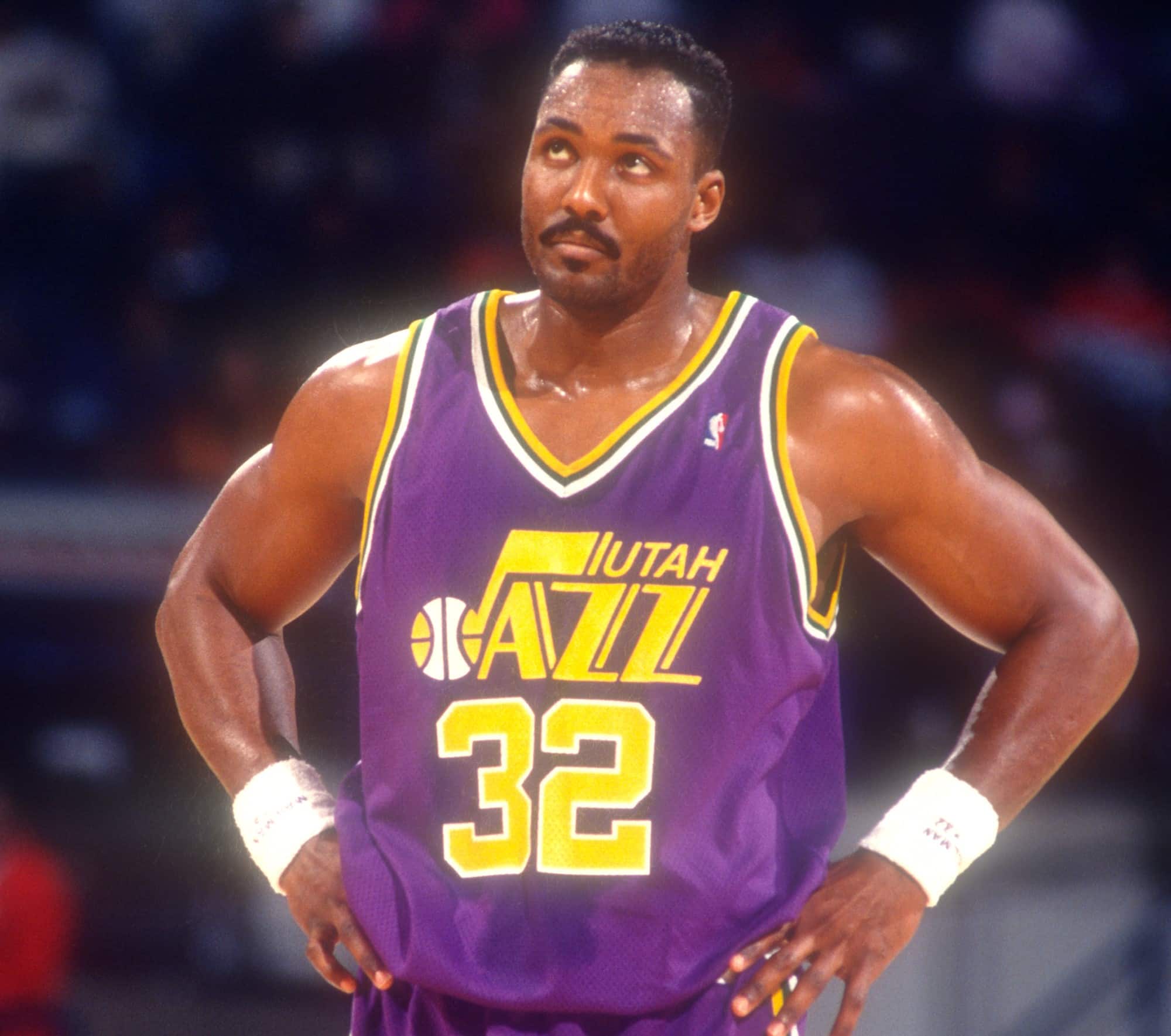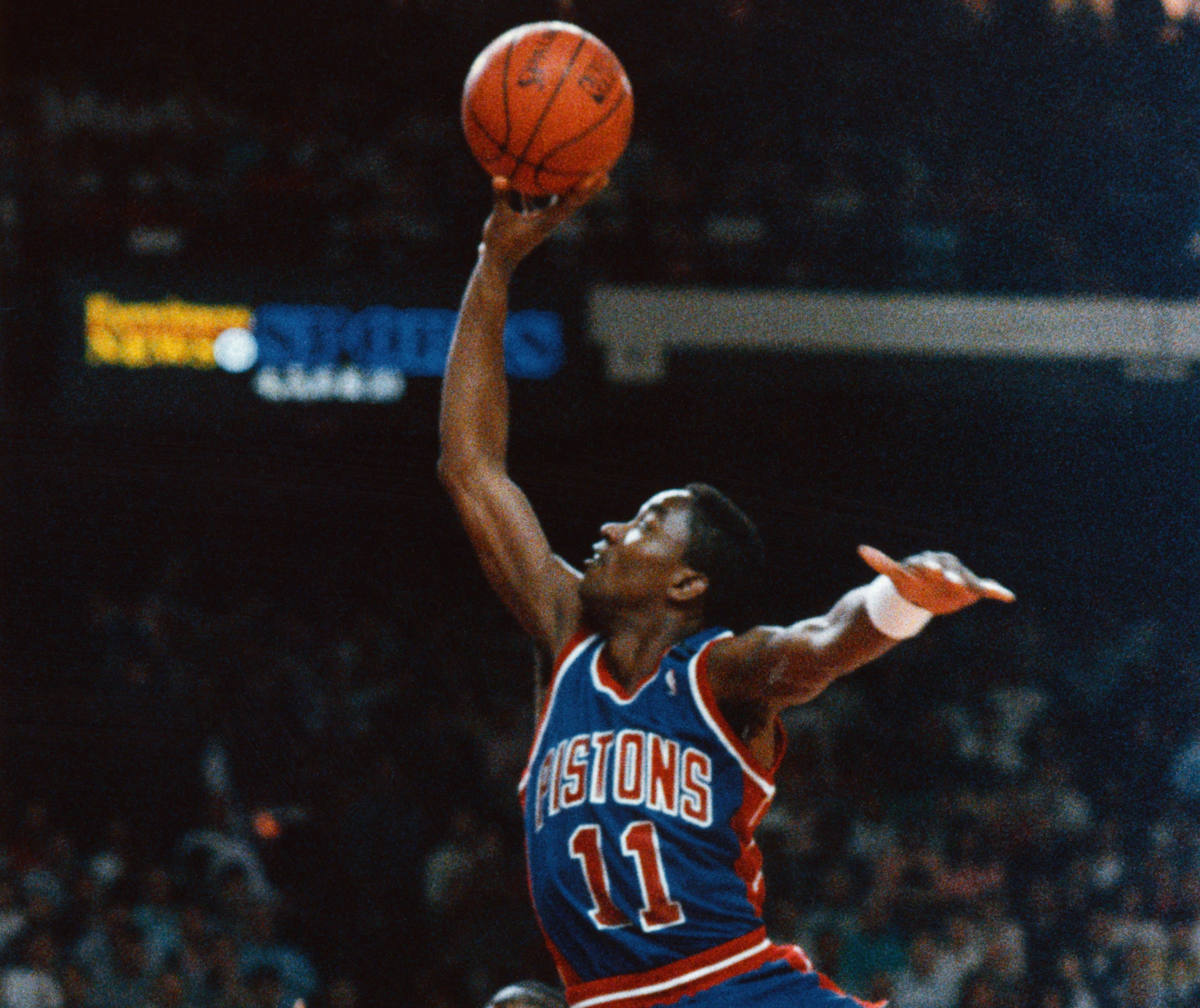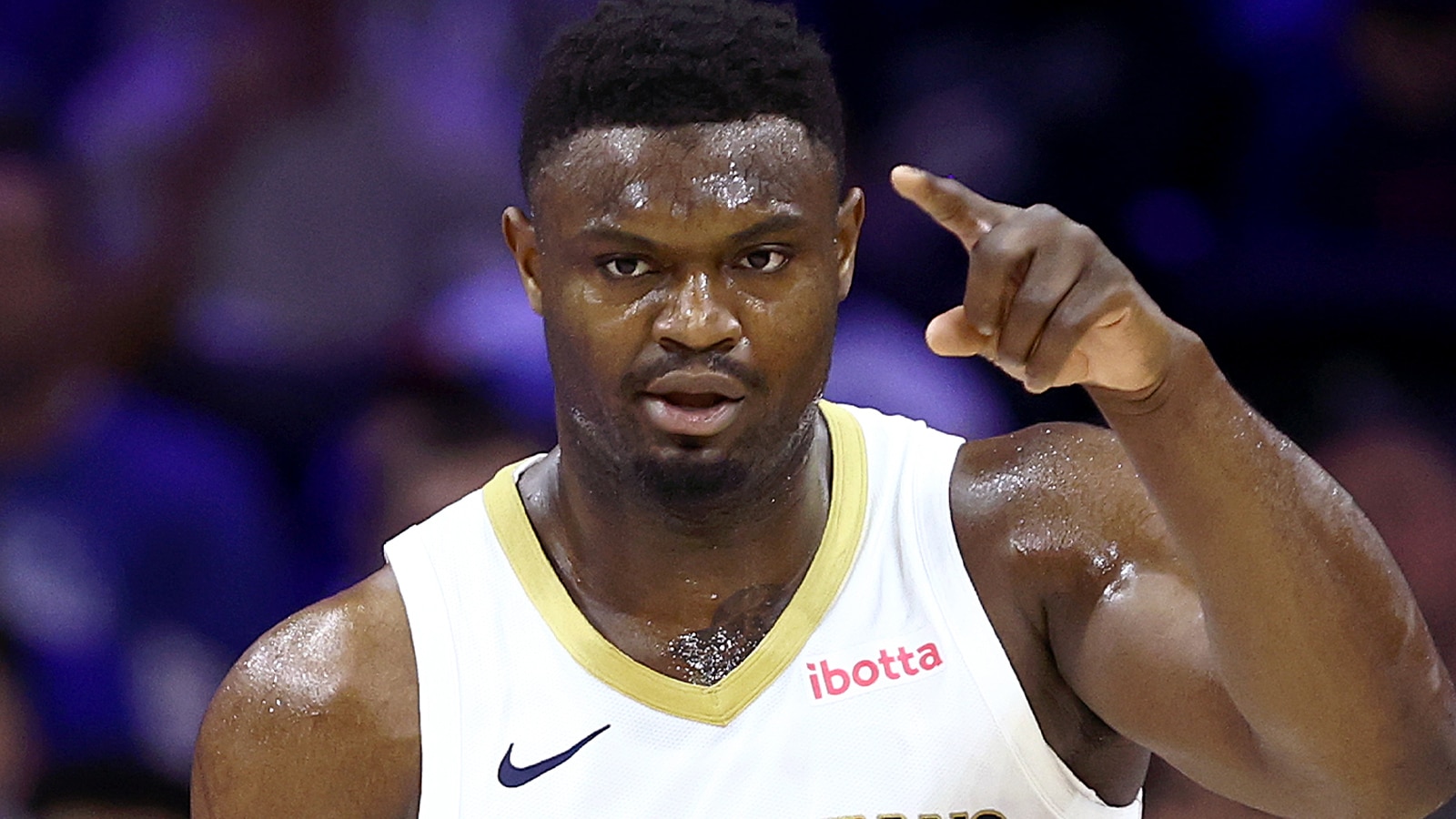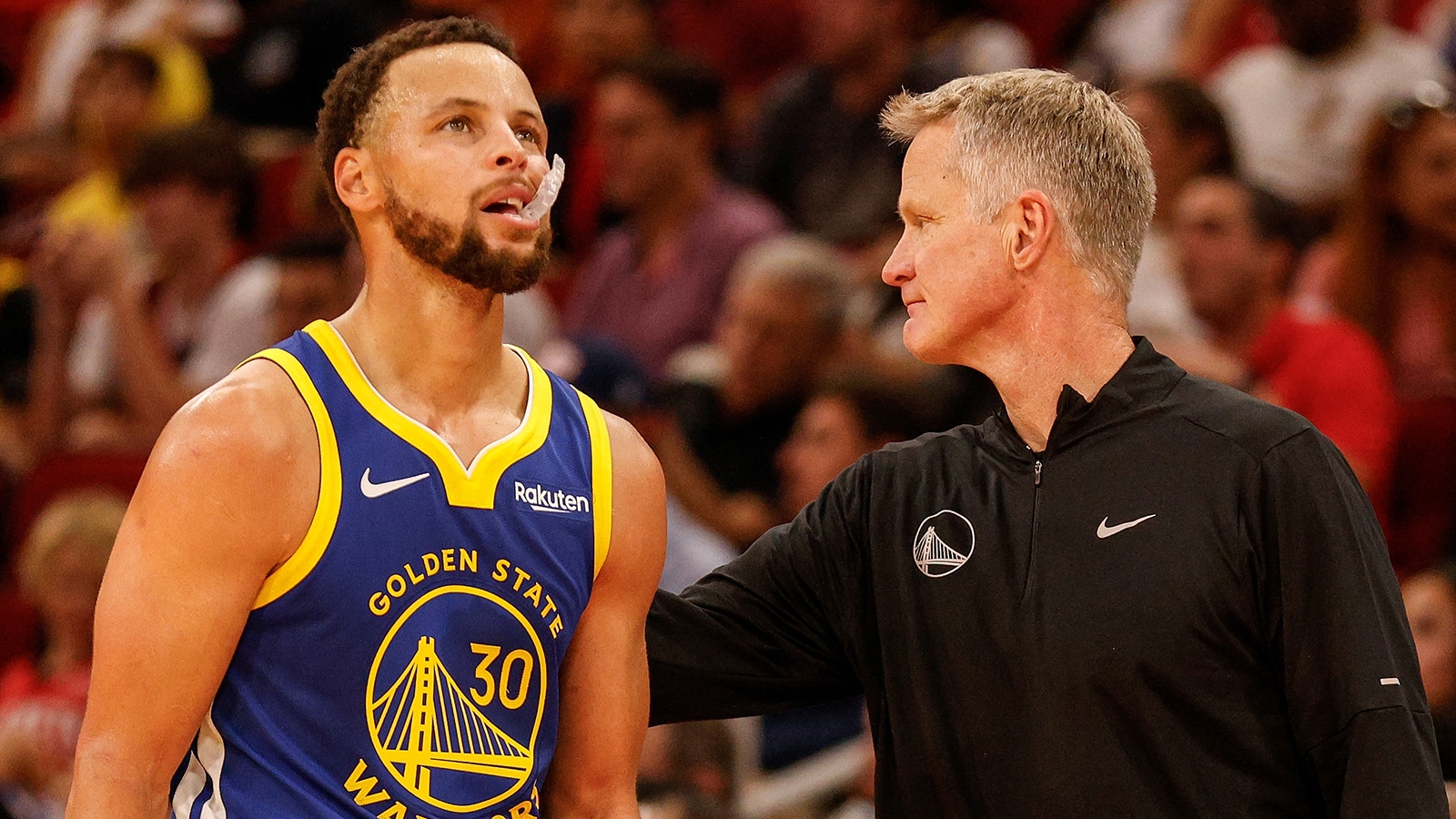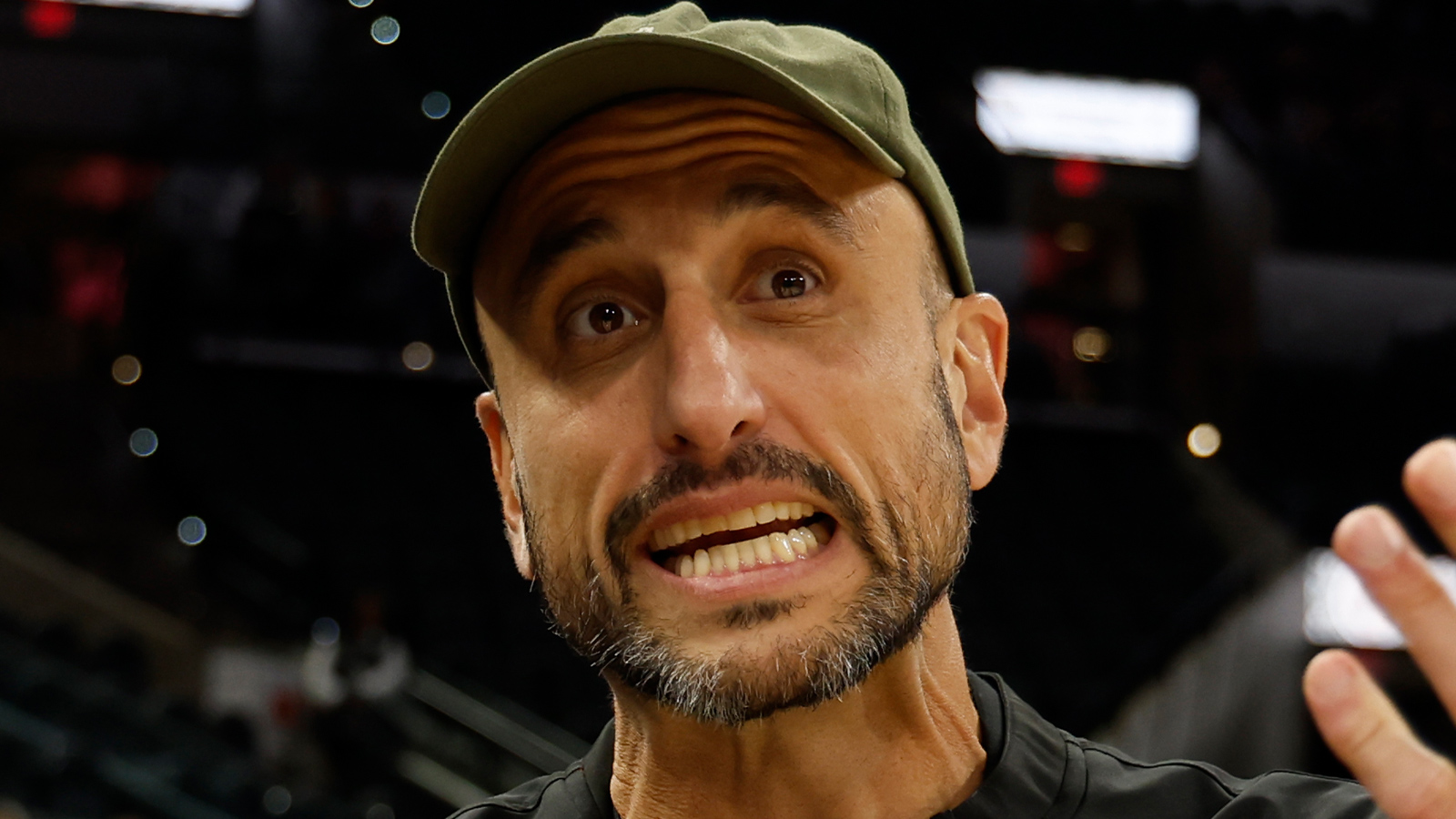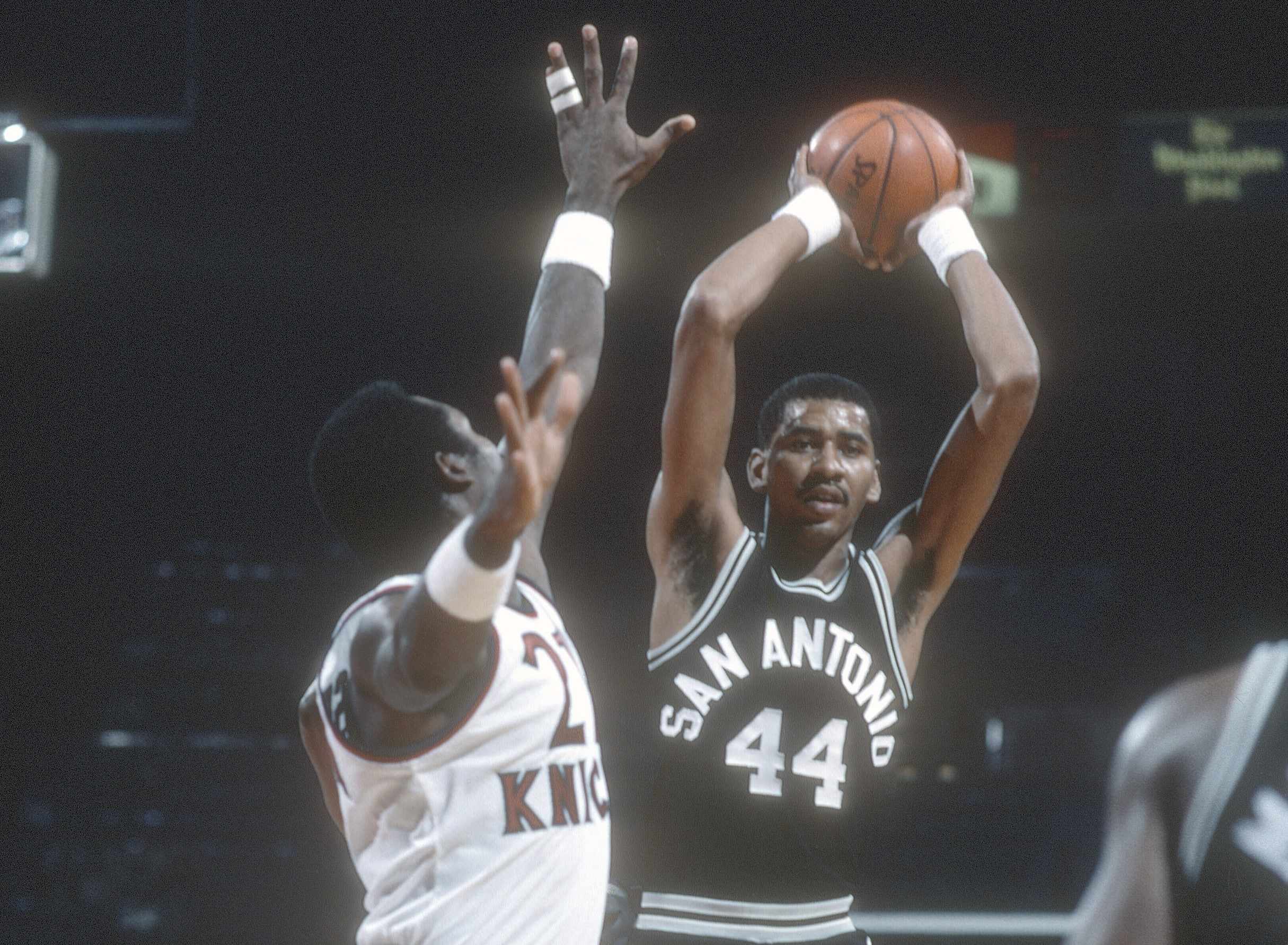
Ranking the Top 10 NBA Shooting Guards of the 1980s
We continue to go back to the 1980s and take a look at the best the NBA had to offer. We’ve already rattled off our top 10 point guards, top 10 centers, and top 10 power forwards. Now, it’s time to take a look at the top 10 shooting guards from that era. The list is star-studded at the top, but when you consider players like Joe Dumars and Reggie Miller did most of their damage in the ’90s, and we have Sidney Moncrief as a point guard and Dale Ellis as a shooting forward, it thins out pretty quickly.
No. 10: World B. Free (Cleveland Cavaliers)
World B. Free played for five teams during his 13 years in the NBA. He earned his lone All-Star Game berth at the beginning of the decade when he averaged a career-high 30.2 points during the 1979-80 season with the San Diego Clippers.
Free could certainly put up the points. After three uneventful years with the Philadelphia 76ers, Free was traded to the San Diego Clippers, where he averaged 28.8 points in the 1978-79 season. That year began a string of 10 straight seasons where he averaged better than 22 points per game.
No. 9: Reggie Theus (Chicago Bulls)
Reggie Theus deserves to be on this list simply because of his durability. The 6-foot-7 guard played all 82 games in his first five seasons in the league and seven of the first eight. In his final five seasons, he combined to miss just 18 games.
Drafted by the Chicago Bulls with the ninth overall pick in 1978, Theus made both of his All-Star appearances in the 1980s. His first came in the 1980-81 season when he averaged 18.9 points and 5.2 assists. He returned to All-Star status two years later when he put up a career-high 23.8 points per game and 5.9 assists.
He spent the first five-plus seasons with the Bulls. Later in his career, he became more of a playmaker, averaging a career-high 9.6 assists with the Sacramento Kings during the 1985-86 season. For his career, Theus put up 18.5 points and 6.3 assists.
No. 8: Andrew Toney (Philadelphia 76ers)
Andrew Toney had Hall of Fame potential, but injuries limited him to five full NBA seasons and eight total.
Known as the “Boston Strangler” for how he came up big against the Boston Celtics in the playoffs early in the decade, Toney played all eight years with the Philadelphia 76ers. He earned back-to-back All-Star berths in 1983 and 1984. In ’83, the Sixers won the NBA title, and Toney averaged 19.7 points while shooting better than 50% from the floor.
Charles Barkley once said Toney was the best player he ever played with.
“Andrew Toney is the best player I ever played with,” said Barkley, per The Baltimore Sun. “When I first got to Philadelphia, everyone kept asking me, ‘How’s Dr. J? What’s Moses like? How about Maurice Cheeks?’ I told them, ‘They’re all fine, but wait until you see Andrew.’”
No. 7: Walter Davis (Phoenix Suns)
Although Walter Davis had two All-Star appearances in the 1970s, he had four more in the ’80s.
Davis was a scorer who shot better than 50% from the floor in his first seven seasons in the NBA. Drafted out of North Carolina by the Phoenix Suns with the fifth pick in 1977, Davis played 15 years in the NBA. The 1978 Rookie of the Year had a pair of All-NBA seasons and averaged 20.5 points and 4.4 assists in his 11 years in Phoenix.
The 6-foot-6 Davis also played three-plus seasons with the Denver Nuggets and also suited up for 32 games with the Portland Trail Blazers.
No. 6: Otis Birdsong (New Jersey Nets)
Birdsong made three of his four All-Star Game appearances in the 1980s, two of them with the Kansas City Kings, the team that selected him with the second overall pick in the 1977 NBA Draft.
Birdsong, a 6-foot-3 guard, made three straight All-Star appearances and proved to be one of the top shooters and scorers in the late ’70s and early ’80s. He was All-NBA in the 1980-81 season when he averaged a career-high 24.6 points.
In a game against the Denver Nuggets in January 1980, Birdsong went for a career-high 49 points when he made 20 of 25 shots from the floor. For his career, he averaged 18.0 points and shot better than 50% from the floor.
No. 5: Rolando Blackman (Dallas Mavericks)
Rolando Blackman strung together three straight All-Star appearances with the Dallas Mavericks, but it was the year before those seasons when he had his best year.
Blackman was in his third NBA season and was coming off a sophomore year in which he saw his scoring average rise from 13.3 points to 17.7. He came into his own during the 1983-84 season when he played 81 games for the Mavs and averaged a career-high 22.4 points with little recognition. He also averaged a career-high 4.6 rebounds, while shooting a career-best 54.6% from the floor.
While those numbers weren’t enough to earn him an All-Star bid, they opened the eyes of many. His numbers dipped the following season (19.7 points, 3.7 rebounds, 50.8%), but he began that streak of three-straight All-Star appearances.
Blackman was a four-time All-Star and averaged 18.0 points in his 13 seasons.
No. 4: Michael Cooper (Los Angeles Lakers)
Michael Cooper is living proof that offensive statistics can be overrated.
Cooper made his money by making a sacrifice. As a senior at New Mexico State, he averaged 16.1 points. When the talented Lakers drafted him in the third round in 1978, he knew he’d have to find a way to make the team. That’s when he realized he needed to focus on the defensive side of the ball.
“When I first got to the Lakers, they told me, ‘We got Kareem (Abdul-Jabbar), Norm Nixon, Jamaal Wilkes,” Cooper once told former Lakers teammate Byron Scott on Scott’s Off the Dribble podcast. “‘I don’t need nobody else shooting the ball.’ That’s kind of how I got into the forte of being a good defensive player.”
Boston Celtics star Larry Bird said Cooper was the only player who could really shut him down. Cooper was All-Defense eight times in his career and was named Defensive Player of the Year for the 1986-87 season. While defense was his priority, Cooper still showed he was capable of scoring, averaging a career-high 11.9 points in the 1981-82 season. Cooper won five championships with the Lakers.
No. 3: Clyde Drexler (Portland Trail Blazers)
Clyde Drexler is a decade tweener, playing more of his games in the 1990s, but his performance in the mid-80 to the end of the decade earns him a top-three appearance on this list.
Drexler earned four of his 10 All-Star appearances in the ’80s, getting his first in the 1985-86 season when he averaged 18.5 points, 8.0 assists, and 5.6 rebounds.
He had his top two scoring averages in the decade, putting up averages of 27.0 and 27.2 points during the 1987-88 and 1988-89 seasons.
Drexler is a five-time All-NBA player who was inducted into the Naismith Memorial Basketball Hall of Fame in 2004. He’s also a member of the NBA’s 75th Anniversary Team.
No. 2: George Gervin (San Antonio Spurs)
Like Drexler, Geroge Gervin was a tweener. He played most of his games in the 1970s, but he did play through the 1985-86 season. Also like Drexler, he put up some series numbers in limited time in the ’80s.
Gervin won the scoring title during the 1981-82 season when he averaged 32.3 points in 79 games. He also pulled down 5.0 rebounds per game in what was his 10th professional basketball season. Gervin was an All-Star in every year of the ’80s except for his final season with the Chicago Bulls.
Gervin, a four-time scoring champ, also was the scoring champion in the 1979-80 season (33.1 points). That was the final year of his three straight scoring titles.
The “Ice Man” averaged 26.0 points in the decade. Gervin was inducted into the Hall of Fame in 1996 and is also a member of the NBA’s 75th Anniversary Team.
No. 1: Michael Jordan (Chicago Bulls)
Arguably the greatest to ever play in the NBA, Jordan has to be the best shooting guard of both the 1980s and the 1990s.
Drafted third overall by the Chicago Bulls in 1984, Jordan led the NBA in scoring for six straight seasons, four when he was playing in the ’80s. Although his second season was hampered by a foot injury that limited him to 18 regular-season games, he played 81-plus games every year of the decade.
In the 1986-87 season, Jordan finished with a career-high 37.1-point scoring average. He also grabbed 5.2 rebounds and dished out 4.6 assists. The following season he put up similar numbers but added Defensive Player of the Year to his resume.
Jordan finished his career with six championships, all coming in the 1990s. He’s a member of the NBA’s 75th Anniversary Team and was inducted into the Hall of Fame in 2009.
